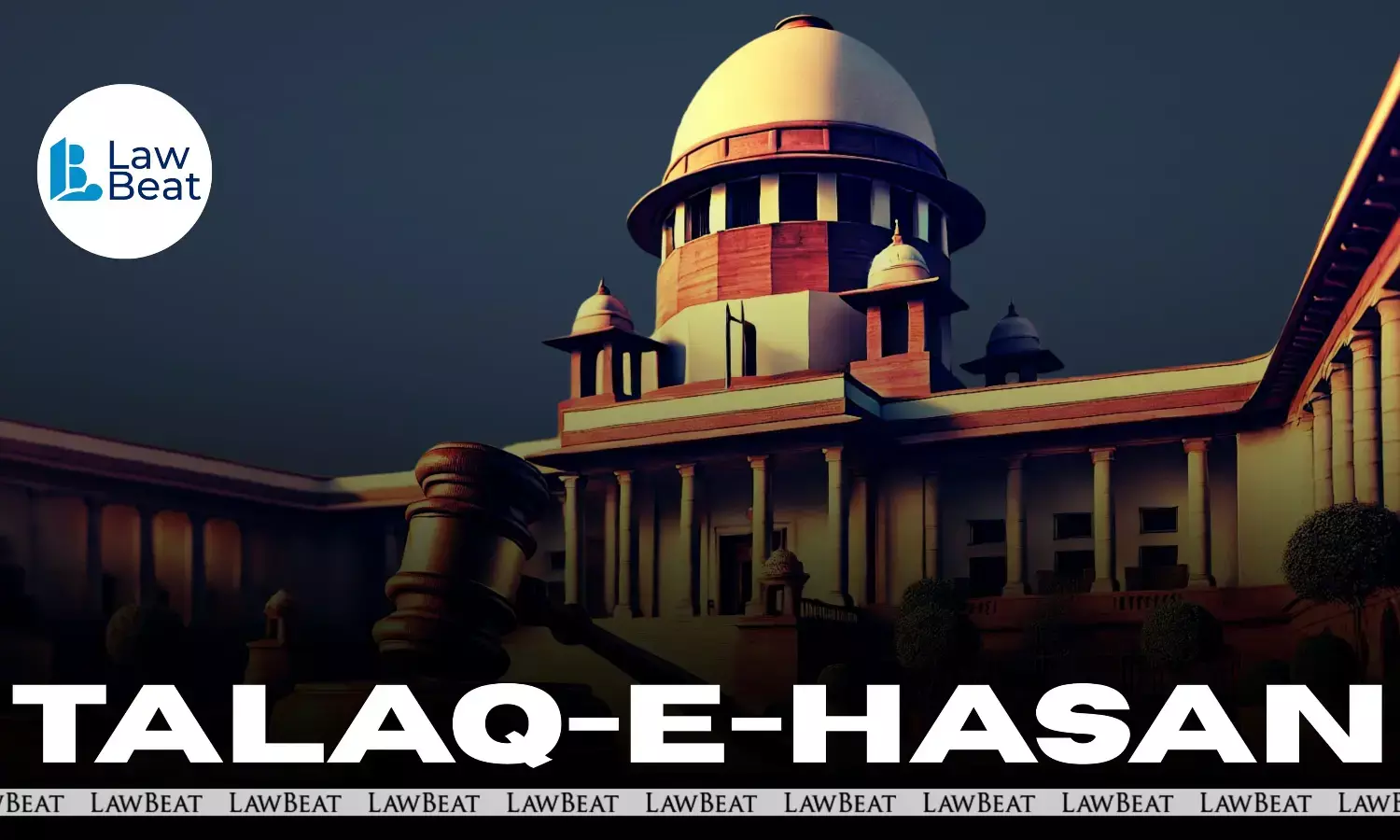Supreme Court Questions Validity of Talaq-e-Hasan Amid Allegations of Divorce Through Lawyer’s Notice

Muslim women’s organisation urged the SC to dismiss a PIL challenging Talaq-e-Hasan and the validity of Muslim Personal Law
The Supreme Court on Wednesday heard a batch of petitions challenging the constitutional validity of “Talaq-e-Hasan”, a form of divorce under Muslim personal law through which a husband pronounces “talaq” once a month over three months to effect separation.
The matter was taken up by a Bench of Justices Surya Kant, Ujjal Bhuyan and NK Singh.
The Court had earlier sought responses from the National Commission for Women (NCW), National Human Rights Commission (NHRC) and National Commission for Protection of Child Rights (NCPCR). During the hearing, NHRC sought additional time to file its reply.
A counsel appearing for a petitioner highlighted the case of a woman who allegedly received an 11-page talaq notice signed not by her husband but by his Advocate.
Justice Kant strongly questioned the practice, remarking that such a procedure raised serious concerns about dignity and women’s rights.
“What prevents the husband from directly writing to her? Does he have such ego that even for divorce he cannot speak to her? Should a civilized society allow this kind of practice?” Justice Kant observed, noting that while the present petitioner was fighting her case, many women would lack the resources to do so and could later face accusations of polyandry if remarried in the absence of a proper divorce record.
The Court was informed that the husband in the case was himself a lawyer. Counsel for the husband, Senior Advocate MR Shamshad, said such delegation was not uncommon under Muslim practice, but assured the bench that the husband would “rectify the situation” and follow the prescribed procedure.
Justice Kant expressed appreciation for the petitioner’s resolve, noting that not every woman would be able to contest such situations. The Bench suggested the husband personally appear before the Court on the next date to follow the lawful mechanism for divorce.
Advocate Ashwini Upadhyay, appearing for another petitioner, argued that despite the ruling in Shayara Bano striking down instant triple talaq (talaq-e-bidat), Talaq-e-Hasan continued to deny Muslim women equal rights available to women of other faiths. She narrated the experience of a woman who, after repeated pleas for support, was unilaterally pronounced “talaq” without receiving maintenance or a formal talaqnama.
“Why should I not have the same rights as other daughters in other religions?” she submitted.
A petitioner-in-person, a journalist who lost her job, told the Court she continued to face difficulties with her passport and her child’s school because her husband had not signed a talaq document.
The Court assured her that she could file an appropriate application, which would be taken up next Wednesday.
On the 75th Constitution Day, Justice Kant remarked that the issue required meaningful judicial engagement. The Court said that once counsel submit a brief note identifying the legal questions, it would consider whether the matter should be referred to a five-judge bench. “A three-judge bench may be sufficient, but let us first see the issues involved,” the Court said.
Two intervention applications were allowed, and the matter will now be taken up on December 3.
The Supreme Court had, while last hearing the matter, observed that the practice of using Talaq-e-Hasan for divorce by Muslims was not prima facie improper. Talaq-e-Hasan is the practice wherein a Muslim man can divorce his wife by saying the word "talaq" once a month, for three months.
While hearing the Public Interest Litigation that seeks direction of the court to declare the practice of Talaq-e-Hasan and other forms of unilateral extrajudicial talaqs void and unconstitutional, the bench further observed that the case should not be used for furthering an agenda. Filed by a journalist namely Benazeer Heena through Advocate Ashwini Upadhyay, the petition notes that "Muslim women can’t give Talaq-E-Hasan & other forms of unilateral extra-judicial talaq but Muslim men can". It seeks direction to frame guidelines for gender-neutral, religion-neutral uniform grounds of divorce & uniform procedure of divorce. As per the plea, Heena has filed the PIL for the development of socially-economically downtrodden and marginalized citizens.
Case Title: Benazeer Heena Vs. Union of India & Ors.
Hearing Date: November 19, 2025
Bench: Justices Surya Kant, Ujjal Bhuyan and NK Singh
